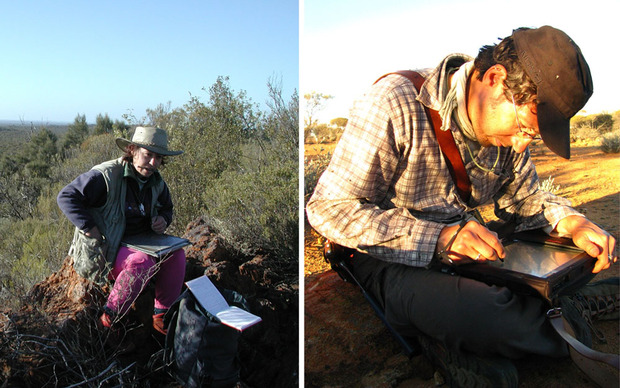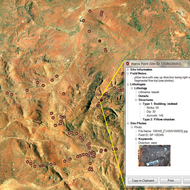A GSWA journal article has topped the GeoResJ list of most downloaded articles in 2016
| Date: | Thursday, 24 August 2017 |
|---|
A paper authored by a team from the Department of Mines, Industry Regulation and Safety (DMIRS) has become one of the most downloaded articles in 2016 on GeoResJ, an open access, online research platform for geologists and geoscientists.

Written by the Geological Survey of Western Australia (GSWA), a division of DMIRS, and published in 2015, the paper is titled ‘125 years of legacy data at the Geological Survey of Western Australia: capture and delivery’.
It reviews several aspects of the GSWA legacy data capture programs and describes the various approaches used for different data sets, with particular emphasis on the capture of field observations from regional mapping, maps and reports of diverse thematic natures, mineral exploration reports and petroleum exploration data.
DMIRS’ Geological Survey of Western Australia Content Manager Angela Riganti said there is quite an appetite within industry for information on the topic of legacy data and data capture.
“Given the huge volumes of information accumulated by GSWA over the last 100 years, it was important to capture data digitally for future exploration and research, and increase awareness of the geological assets of the State. The article covers the department’s custom-designed systems and databases, and details how GSWA legacy data is delivered to the public, both in standalone products and online,” said Dr Riganti.
For more information about GSWA please visit the department’s website. Alternatively, to read the paper, please visit the GeoResJ website.

